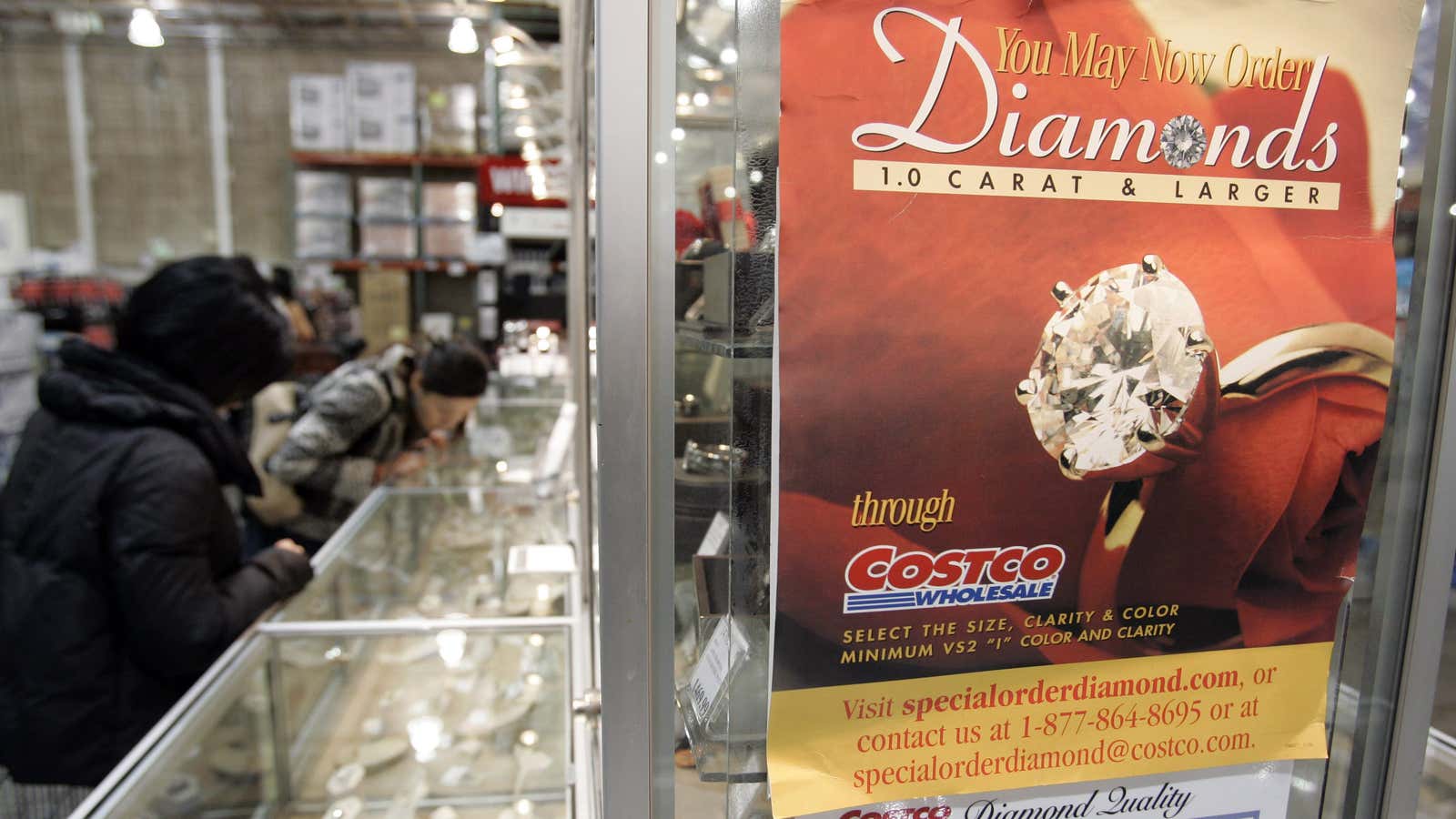Tiffany has become synonymous with a few different things in the 180 years the jewelry brand has been in business. One is its little boxes in their cheerful aqua blue. Another is the 1961 movie Breakfast at Tiffany’s. Last but not least, there’s the Tiffany setting, which uses a ring of prongs that protrude from the band to hold a single diamond, allowing it to catch light all over.
Before it was invented, the typical setting was a bezel that “encircled the stone like a metal turtleneck sweater,” according to Forbes. Since 1886, when the company bought the patent from a New Jersey jeweler, Tiffany has so popularized the style that it is today commonly just referred to as a Tiffany setting. Now, how another company uses the term is the subject of an ongoing court battle that is proving expensive for low-cost warehouse retailer Costco.
On Aug. 14, Costco got hit with a judgment directing it to pay Tiffany more than $19 million for selling about 2,500 diamond rings (paywall) it marketed as “Tiffany” rings. The amount includes $11.1 million—three times the estimated profits Tiffany lost from Costco’s infringement, plus interest—and another $8.25 million in punitive damages.
The case has been going on since Tiffany filed its first complaint against Costco on Valentine’s Day (Feb. 14) of 2013, after Tiffany became aware that Costco was using its name on store signage. Costco has argued that it was using “Tiffany” to refer to the style of setting, and that it never led customers to believe the rings were actually made by Tiffany.
The court, though, ruled Costco repeatedly used “Tiffany” as a standalone term, rather than specifying “Tiffany setting” or “Tiffany style.” US district judge Laura Taylor Swain also noted that the store had placed rings with standalone “Tiffany” signs near displays of name-brand luxury watches, and salespeople described rings as “Tiffany” to customers. She added that Costco’s upper management “displayed at best a cavalier attitude toward Costco’s use of the Tiffany name in conjunction with ring sales and marketing.”
In a statement, Leigh Harlan, Tiffany’s senior vice president and general counsel, said: “We brought this case because we felt a responsibility to protect the value of our customers’ purchases and to ensure that Costco‘s customers were not mislead about their purchases. It is critically important that the Tiffany name not be used to sell any engagement ring that is not our own.”
Costco plans to fight the ruling. “Costco respectfully submits that the ruling is a product of multiple errors in pretrial, trial, and post-trial rulings and intends to appeal,” it stated, saying that Costco had changed its signs to remove all references to Tiffany after the company first complained to Costco back in 2012.
As part of Swain’s ruling, Costco is permanently banned from using “Tiffany” as a standalone term in its marketing and signs.
